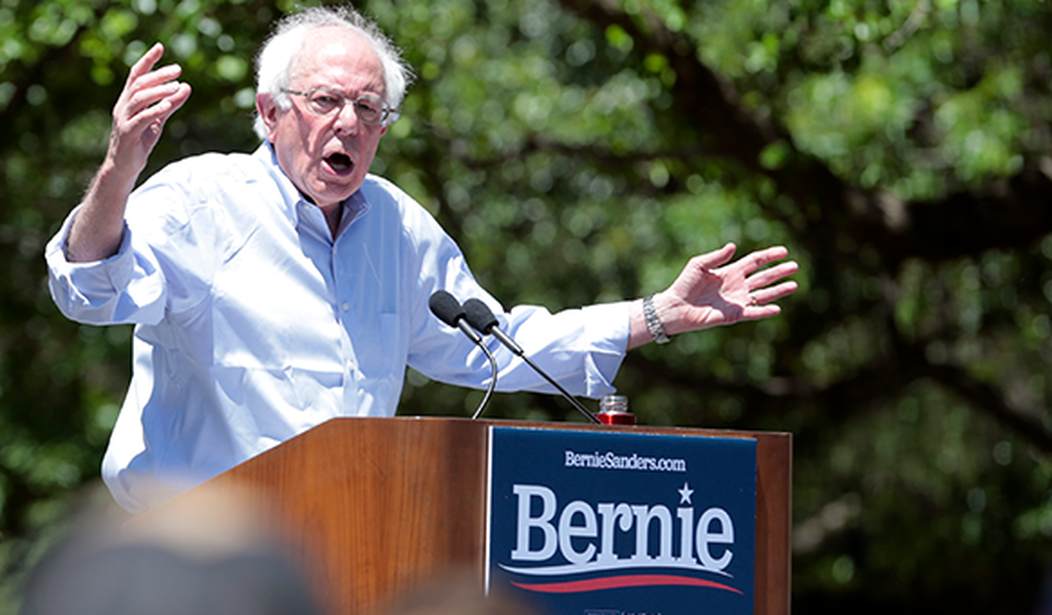Losing energy faster than my cellphone battery, socialist members of Congress have resorted to dredging-up flawed ideas and foisting them onto the American public under the guise of consumer protection. Sen. Bernie Sanders (D-Vt.) and his acolyte, Rep. Alexandria Ocasio-Cortez (D-N.Y.), propose “new” legislation that would cap interest rates companies can charge for credit-card purchases, consumer loans, and payday-lending services. We’ve heard these “solutions” before—it’s merely a rehash of similar policies introduced in the 1960s. They didn’t work then and they won’t work now.
The Sanders’-AOC legislation would limit interest rates credit-card companies can charge to 15 percent. This 15-percent limit would also apply to consumer loans. Ocasio-Cortez argues, “There is no justifiable reason that a person—no matter their background—should be charged an interest rate higher than 15 percent.” Yet Sanders and Ocasio-Cortez either forget or simply overlook the severe economic consequences that nearly always occur when arbitrary price caps are placed on our free markets. These two also grimace at the thought of any company in America actually making a profit.
If Ocasio-Cortez and Sanders get their way, it would be nearly impossible for the average American to be approved for a Visa or an American Express card unless he or she has a virtually spotless credit history. Processing credit-card transactions, offering customer support, securing privacy, protecting individual data, and stopping fraud are what we expect from every credit provider today—and the resources needed to offer those crucial services must come from somewhere.
As history has shown, if lenders are forced to cap interest rates, they will simply recover revenue in other ways. The Wall Street Journal editorial board noted, “Annual fees would return for basic cards. Recall what happened after Democrats in 2010 capped debit-card ‘swipe fees’ on merchants. Banks quit offering free checking and raised monthly fees for millions of nonrich customers.”
Recommended
And, if this legislation passes, those with subpar credit scores will have no way of obtaining short-term loans when they’re in a financial bind. Capping credit-card-interest rates has a history of forcing those who no longer meet the inevitably high entry requirements to seek out questionable means of credit. Do Democrats really want to help loan sharks and pawnbrokers in the name of helping consumers? Talk about unintended consequences!
The reason lower interest rates on small-dollar loans such as cash advances and everyday credit-card charges aren’t generally feasible is the same reason mortgage lenders often decline to finance low-dollar mortgages. “The whole system incentivizes high-[balance] loans,” Michael Bright, president of the Structured Finance Industry Group, told the Wall Street Journal.
Cato Institute policy analyst Diego Zuluaga observes, “With more than 8 million American households lacking a bank account and another 24 million without access to much consumer credit, it would be a reckless gamble to remove the few options many low-income Americans currently have by making it unprofitable to lend to them.”
As it stands now, more than 8 percent of American credit-card holders between the age of 18 and 29 are more than 90 days delinquent on their account, reports Bloomberg.
Perhaps the most absurd part of the entire proposal is that the duo wants to resurrect postal banking and have the U.S. Postal Service help administer credit and consumer loans. Postal banking has been tried before. The program fizzled in 1967. Allowing our postal service to provide loans and manage checking accounts is a grave mistake considering how the institution lost $3.9 billion in 2018.
Forget “signed, sealed, delivered" —this is one foolhardy proposal that should be stamped “Return to sender.”
Colin Hanna is President of Let Freedom Ring, a non-partisan membership organization committed to promoting the ideas of free enterprise, limited government and traditional values.

























Join the conversation as a VIP Member